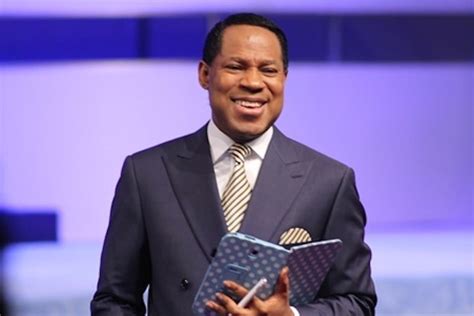A Quote by Erwin McManus
The Christian faith grew through story - not text. Only later did the stories become Scripture. While the Scripture must be held in the highest regard, we must not neglect the power of story.
Related Quotes
All appeals to Scripture are appeals to interpretations of Scripture. The only real question is: whose interpretation? People with differing interpretations of Scripture cannot set a Bible on a table and ask it to resolve their differences. In order for the Scripture to function as an authority, it must be read and interpreted by someone. According to "solo" Scriptura, that someone is each individual, so ultimately, there are as many final authorities as there are human interpreters.
Jesus accepted the plenary [i.e., complete, extending to all its parts] inspiration of the Bible; when first approached by the devil to turn stones into bread, our Lord replied that man lives by every word that proceeds from the mouth of God (Matt. 4:4 quoting Deut. 8:3). He did not say, "some words" but "every word." If Scripture is breathed out from God (2 Tim. 3:16), then Scripture must be included in what sustains man, not only parts of Scripture but all of it.
Some people are ignorant of the world but educated in Scripture, and are therefore prone to missing the relevance of Scripture - these sometimes, later, amidst life's challenges and doubts, turn from the faith; other people are ignorant of Scripture but educated in the world, and are therefore prone to missing the truth of Scripture - they are often those who ridicule the faith. The apologist stands somewhere in the center. He articulates where some are prone to understanding the truth in beauty, others the beauty in truth - that of a spiritual Creator in relation to his scientific creation.
There's a lovely Hasidic story of a rabbi who always told his people that if they studied the Torah, it would put Scripture on their hearts. One of them asked, "Why on our hearts, and not in them?" The rabbi answered, "Only God can put Scripture inside. But reading sacred text can put it on your heart, and then when your hearts break, the holy words will fall inside.
It is scripture alone, not conservative Evangelical tradition or any other human authority, that must function as the normative authority for the definition of what we should believe. The authority of the scripture means that all the words in scripture are God's words in such a way that to disbelieve or disobey any word of scripture is to disbelieve or disobey God.
A man who tells secrets or stories must think of who is hearing or reading, for a story has as many versions as it has readers. Everyone takes what he wants or can from it and thus changes it to his measure. Some pick out parts and reject the rest, some strain the story through their mesh of prejudice, some paint it with their own delight. A story must have some points of contact with the reader to make him feel at home in it. Only then can he accept wonders.
Scripture will ultimately suffice for a saving knowledge of God only when its certainty is founded upon the inward persuasion of the Holy Spirit. Indeed, these human testimonies which exist to confirm it will not be vain if, as secondary aids to our feebleness, they follow that chief and highest testimony. But those who wish to prove to unbelievers that Scripture is the Word of God are acting foolishly, for only by faith can this be known.
Illustrations have as much to say as the text. The trick is to say the same thing, but in a different way. It's no good being an illustrator who is saying a lot that is on his or her mind, if it has nothing to do with the text. . . the artist must override the story, but he must also override his own ego for the sake of the story.
The violent portraits of God in Scripture have become one of the biggest obstacles to believers coming to faith. When we can show how these portraits bear witness not to a violent God, but to the non-violent loving God revealed on Calvary, these obstacles to believing in the inspiration of Scripture become one of the most compelling reasons for believing in the inspiration of Scripture.



































